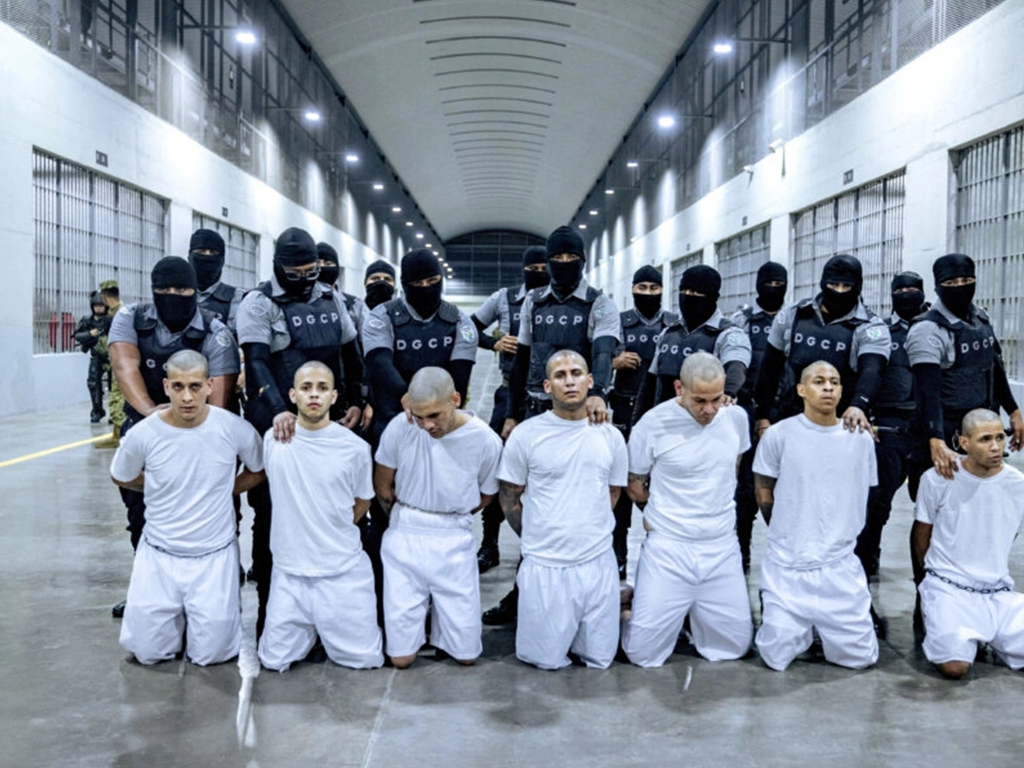Additionally Featured
U.S. Supreme Court Disallows Judge Boasberg’s Jurisdiction on Venezuelan TdA Gang Deportations.
Update: SCOTUS has now prohibited the deportation of any TdA gang members until or unless it lifts its new Order.

The Supreme Court has agreed with President Donald Trump’s request to vacate Judge Boasberg’s orders denying Mr. Trump’s invocation of the Alien Enemies Act (AEA) to deport terrorists belonging to the Venezuelan gang Tren de Aragua (TdA).
“We grant [Trump’s] application and vacate [Judge Boasberg’s] TROs” the court said in a per curiam decision.
Read the Supreme Court’s Decision here.
Justice Amy Coney Barrett disappointed conservatives again as she sided with liberal Justices Sonia Sotomayor, Elena Kagan and Ketanji Brown Jackson in opposing President Trump’s request to vacate Boasberg’s orders. Barrett, who was nominated by President Trump in his first Administration, and who was heralded as the conservative successor of the late Justice Antonin Scalia, for whom she clerked, has instead sided with the liberals against President Trump in case-after-case, with only a few exceptions.
Let us explain clearly what this decision means and what it does not mean, because it does not mean that the Trump Administration has carte blanche to deport TdA gangsters to El Salvador. (See the UPDATE just below, as the Supreme Court has now prohibited the deportation of any Tren de Aragua (TdA) gang members under the Alien Enemies Act (AEA) until or unless it lifts its prohibition.)
UPDATE: Several days after issuing its Order determining that Boasberg had no jurisdiction to be involved in this case and setting in place a procedure whereby deportees would receive a deportation notice in sufficient time to challenge their deportations in court, the ACLU filed an Emergency Application that convinced the Supreme Court that deportations were resuming but without reasonable notice. Per the ACLU filing: “Members of the proposed class are in imminent and ongoing jeopardy of being removed from the United States without notice or an opportunity to be heard.” The Supreme Court thereupon issued a new Order stating that, “The Government is directed not to remove any member of the putative class of detainees from the United States until further order of this Court.” The “putative class of detainees” is understood by us to refer to members of the Venezuelan gang Tren de Aragua (TdA). At this point, we are stuck with these monsters and cannot deport them under the Alien Enemies Act (AEA), as invoked by President Trump to rid the nation of these terrorist murderers, until the Supreme Court decides to revisit the matter at some later later, presumably after a decision is made in the Fifth Circuit. Only Justice Thomas and Justice Alito dissented from the Court’s order, so once again we see Chief Justice Roberts and Justice Amy Coney Barrett siding with the Court’s Liberal wing.
Justice Alito, joined by Justice Thomas issued a sharp dissent: “In sum, literally in the middle of the night, the Court issued unprecedented and legally questionable relief without giving the lower courts a chance to rule, without hearing from the opposing party, within eight hours of receiving the application, with dubious factual support for its order, and without providing any explanation for its order,” Alito wrote, adding, “The papers before us, while alleging that the applicants were in imminent danger of removal, provided little concrete support for that allegation.”
Several weeks ago, the U.S. government deported two planeloads of TdA members to a SuperMax prison (“Centro de Confinamiento del Terrorismo,” abbreviated as CECOT) in El Salvador. This was done pursuant to Mr. Trump’s Proclamation declaring them to be enemy terrorists who were wrongfully in the United States. Mr. Trump invoked the Alien Enemies Act, 50 USC § 21, a 1798 law, that provides, in part,
“That whenever there shall be a declared war between the United States and any foreign nation or government, or any invasion or predatory incursion shall be perpetrated, attempted, or threatened against the territory of the United States, by any foreign nation or government, and the President of the United States shall make public proclamation of the event, all natives, citizens, denizens, or subjects of the hostile nation or government, being males of the age of fourteen years and upwards, who shall be within the United States, and not actually naturalized, shall be liable to be apprehended, restrained, secured and removed, as alien enemies.”
Five TdA members — and readers should understand that the TdA gang is a terribly violent gang, the kind of people who are legitimately called “monsters,” intent on evil, who have terrorized American citizens since they started arriving in this country in great numbers during the Biden Administration — who were detained in Texas and who were, by their luck, not deported, filed a court case in Washington, DC, claiming that deportations under the Alien Enemies Act were unconstitutional and that, in any case, they were denied due process in challenging the deportations.
U.S. District Court Judge Boasberg, a very liberal Democrat judge who is well-known to despise Donald Trump and likely any Republican or Conservative, sided with TdA, and ordered all deportations to stop until or unless he approved them. In doing so, he assumed the President’s duties, thus usurping the powers of the Executive Branch. But he also took several highly unorthodox actions: He quickly, and without hearings, declared that all TdA gang members were now a class (in a class-action lawsuit), so that his jurisdiction would extend to all TdA members, not just the five who were named plaintiffs in the case. He also ordered that the deportation planes, which were then in the air, be turned around to return these monsters to the United States. Since the planes were not turned around, Boasberg started contempt proceedings, likely for the purpose of finding President Trump in contempt of court and thus giving the Democrats a basis for seeking his third impeachment. Boasberg is highly political, and he has a record of politically motivated rulings, all benefitting Democrats. (See AmericanVantagePoint.com’s article initially reporting on Boasberg’s highly irregular proceedings, “U.S. District Judge Boasberg Orders Trump Not to Deport Any More Venezuelan Gang Terrorists.“)
Trump’s DOJ appealed first to the D.C. Court of Appeals, where it found several more Boasberg-type judges who affirmed Boasberg’s orders. Then the DOJ appealed again to the U.S. Supreme Court, where Boasberg’s orders, on a 5-4 decision, were vacated and the case removed from his jurisdiction. The high court did not affirm or deny the appropriateness of the President’s Proclamation under the Alien Enemies Act, nor did it determine whether any particular individuals were indeed TdA members. What SCOTUS did, very simply, was to decide that any legal challenges to actions under the Alien Enemies Act were required to be brought as petitions for a Writ of Habeas Corpus and these could only be brought in the jurisdiction where the plaintiffs were confined. Thus, the high court determined that the only appropriate legal avenue for these plaintiffs was via Habeas and only in Texas. Simply put, Boasberg in D.C. has no jurisdiction, and so the case was effectively dismissed* and all of Boasberg’s orders and rulings were vacated. As the Supreme Court put it, “The only question is which court will resolve that challenge. For the reasons set forth, we hold that venue lies in the district of confinement.” (*For a fact, SCOTUS did not dismiss the case, but its decision now goes back to Boasberg who really has no choice but to dismiss the case himself, as he has no jurisdiction to continue.)
So at this point, the five TdA plaintiffs can begin a new proceeding by filing for a Writ of Habeas Corpus in Texas. But that does not mean the deportations to El Salvador can resume unimpeded: The Supreme Court made clear that “AEA [Alien Enemies Act] detainees must receive notice after the date of this order that they are subject to removal under the Act. The notice must be afforded within a reasonable time and in such a manner as will allow them to actually seek habeas relief in the proper venue before such removal occurs.” Here’s what will happen now: Any TdA gang member that the government determines must be deported pursuant to the AEA must be given notice that he is on a deportation list. That notice must be given with sufficient time (one week?, ten days?, two weeks?, we don’t know) for him or his lawyers to file for habeas relief prior to the scheduled deportation. If he files, the deportation will be stopped until the court hears the matter and determines whether to allow or disallow the deportation. For TdA members detained in Texas — no matter where they were arrested — the case must be filed in the appropriate Texas venue. The habeas inquiry in AEA matters is quite limited: judicial intervention is precluded beyond what is necessary to vindicate due process rights. “[W]e have held that an individual subject to detention and removal under that statute is entitled to ‘judicial review’ [only] as to “questions of interpretation and constitutionality” of the Act.”
Judge Boasberg was smart enough to know that he had no jurisdiction under habeas corpus for individuals confined in Texas, and thus he gave himself jurisdiction under the Administrative Procedure Act. But as Justice Kavanaugh stated in his concurring opinion, “The only question is where that judicial review should occur. That venue question turns on whether these transfer claims belong in habeas corpus proceedings or instead may be brought under the Administrative Procedure Act. I agree with the Court’s analysis that the claims must be brought in habeas.”












